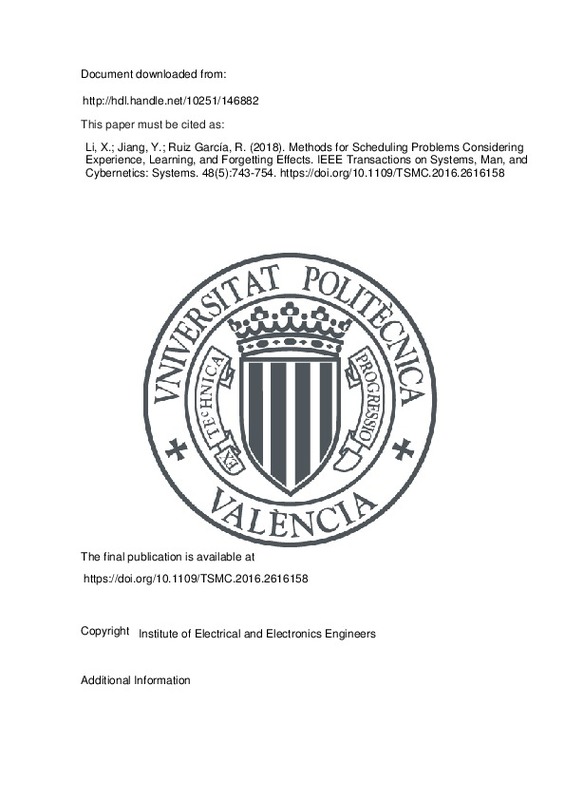JavaScript is disabled for your browser. Some features of this site may not work without it.
Buscar en RiuNet
Listar
Mi cuenta
Estadísticas
Ayuda RiuNet
Admin. UPV
Methods for Scheduling Problems Considering Experience, Learning, and Forgetting Effects
Mostrar el registro completo del ítem
Li, X.; Jiang, Y.; Ruiz García, R. (2018). Methods for Scheduling Problems Considering Experience, Learning, and Forgetting Effects. IEEE Transactions on Systems, Man, and Cybernetics: Systems. 48(5):743-754. https://doi.org/10.1109/TSMC.2016.2616158
Por favor, use este identificador para citar o enlazar este ítem: http://hdl.handle.net/10251/146882
Ficheros en el ítem
Metadatos del ítem
| Título: | Methods for Scheduling Problems Considering Experience, Learning, and Forgetting Effects | |
| Autor: | Li, Xiaoping Jiang, Y. | |
| Entidad UPV: |
|
|
| Fecha difusión: |
|
|
| Resumen: |
[EN] Workers with different levels of experience and knowledge have different effects on job processing times. By taking into account 1) the sum-of-processing-time; 2) the job-position; and 3) the experience of workers, a ...[+]
|
|
| Palabras clave: |
|
|
| Derechos de uso: | Reserva de todos los derechos | |
| Fuente: |
|
|
| DOI: |
|
|
| Editorial: |
|
|
| Versión del editor: | https://doi.org/10.1109/TSMC.2016.2616158 | |
| Código del Proyecto: |
|
|
| Agradecimientos: |
This work was supported in part by the National Natural Science Foundation of China under Grant 61572127 and Grant 61272377, in part by the Key Research and Development Program in Jiangsu Province under Grant BE2015728, ...[+]
|
|
| Tipo: |
|







![[Cerrado]](/themes/UPV/images/candado.png)


